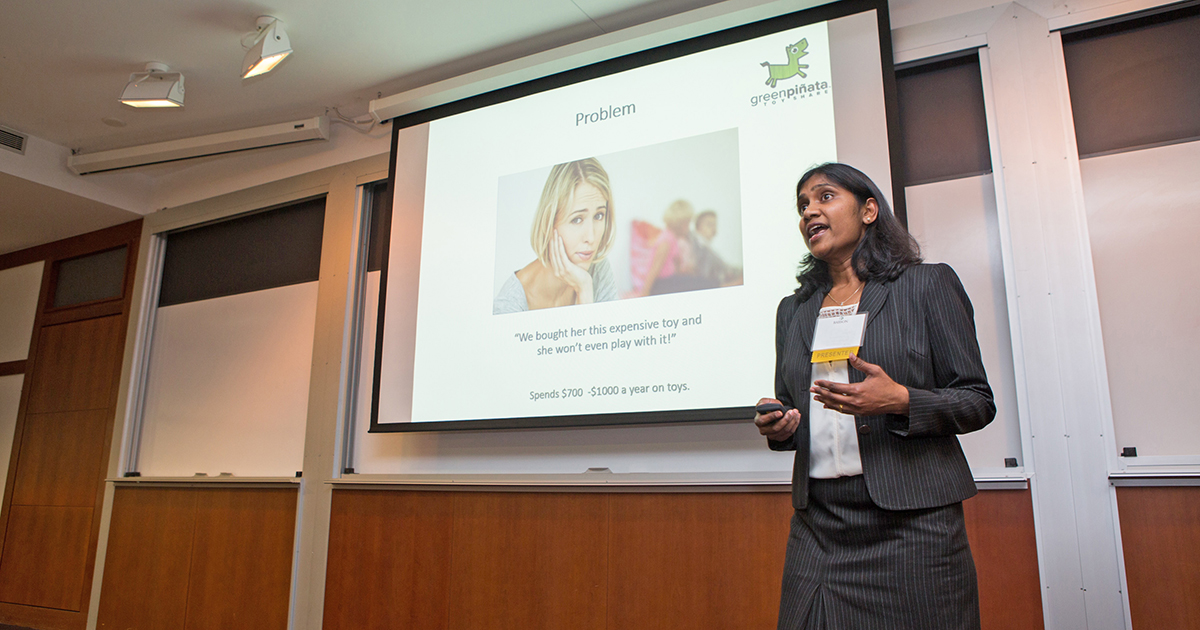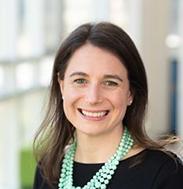B.E.T.A. Challenge Winners: Where Are They Now?

Babson was the first academic institution to have a business plan competition—and the first to transform it. Recognizing that action is integral to success in entrepreneurship, The Arthur M. Blank Center for Entrepreneurship reshaped the competition to what we now know as the B.E.T.A. (Babson Entrepreneurial Thought & Action®) Challenge. Now in its eighth year, the Blank Center’s B.E.T.A. Challenge recognizes major milestones Babson businesses have achieved by taking action.
Each April, alumni, graduate, and undergraduate businesses compete for their chance at over $200,000 in cash and prizes. Eighteen semifinalists are chosen to present their businesses at a Venture Expo and, from there, only nine progress to pitch in the finale.
As this year’s competition nears, several past B.E.T.A. Challenge winners shared updates on their businesses with us.
Rob Hunter MBA’14, HigherMe
When Rob Hunter and his co-founder Evan Lodge MBA’14 won the graduate track of the B.E.T.A. Challenge in 2014, it served as motivation to take the next step with their business HigherMe, a hiring platform for restaurant and retail businesses to recruit, screen, interview, and onboard employees. As Hunter explains, “We couldn’t have won that and then ridden off into the sunset.” Ride off into the sunset, they did not.
Hunter went on to take HigherMe through two highly competitive accelerators, MassChallenge and Y Combinator, and to raise $3.5 million in funding from a roster of investors including Gautam Gupta ’07, CEO and co-founder of NatureBox, and Ryan Holmes, CEO and founder of Hootsuite. HigherMe is now growing quickly, recently hitting a major benchmark of 1 million job applicants processed, but responsibly. Hunter maintains high-level focus on diversifying HigherMe’s client base, driving profitability, and measuring metrics that matter.
Coming up on the five-year anniversary of winning the B.E.T.A. Challenge, Hunter offers valuable pitching advice to entrepreneurs preparing to compete: “The way I prep … I will sit down … I will just start speaking and I will time myself. And, I will do it again and again and again and again.” The result: a natural, authentic flow. He encourages entrepreneurs to speak knowledgeably and conversationally about their businesses and to highlight how their accomplishments have moved their businesses forward.
Shiva Kashalkar MBA’11, Green Piñata Toys
Forbes recently featured Green Piñata Toys, a toy subscription service for parents who want high-quality, educational toys, as a startup disrupting a new category with the rental model. This feature came on the heels of a feature on Parents.com. By leveraging customers’ engagement with experience not ownership, Shiva Kashalkar MBA’11, CEO and founder of Green Piñata Toys, explains, “We are really changing up this industry.”
Kashalkar originally founded Green Piñata Toys in 2015 when she struggled to find nontoxic, educational toys for her daughter. When she and Kiran Kashalkar MBA’15 won the alumni track of the 2016 B.E.T.A. Challenge, the $20,000 prize enabled Green Piñata Toys to build a website, hire a team, and launch marketing efforts. Shiva is clear about the impact the B.E.T.A. Challenge had on her business’ start: “It came at the right time for us. It was extremely important for the company’s growth at the time.”
Joanna Geisinger MBA’17, TORq Interface
Winning the graduate track of the B.E.T.A. Challenge in 2017 was pivotal to Joanna Geisinger MBA’17 being able to fund the first pilot for TORq Interface, a platform that connects hospitals and medical device representatives to streamline surgical scheduling. Geisinger is honest and forthcoming about the learning curve she experienced. She opened up “the big black box of how to integrate with Electronic Health Records,” built relationships with hospitals and medical device companies, and listened to users, which include nurses, hospital CIOs, and operations at medical device companies.
In developing TORq, Geisinger focused on the scaleability, the stability, and the security of the platform. TORq is now live in numerous hospitals in New England, and she remains committed to listening to customers and carefully considering analytics around the user interface. What are users tapping on? If they aren’t using new features, why? If they haven’t downloaded it, why? Then, she digs deeper. When users bring a specific problem to the table, she works to uncover the “why” behind the issue and to address the root cause. About customer listening, she notes that it’s “an art I’ve learned over the last few years.”
Just as Geisinger has learned and iterated when it comes to building TORq, she urges entrepreneurs competing in the B.E.T.A. Challenge to be open to the opportunity: “It’s a learning experience whether you win or don’t win. It will help your company win.”
Posted in Entrepreneurial Leadership




